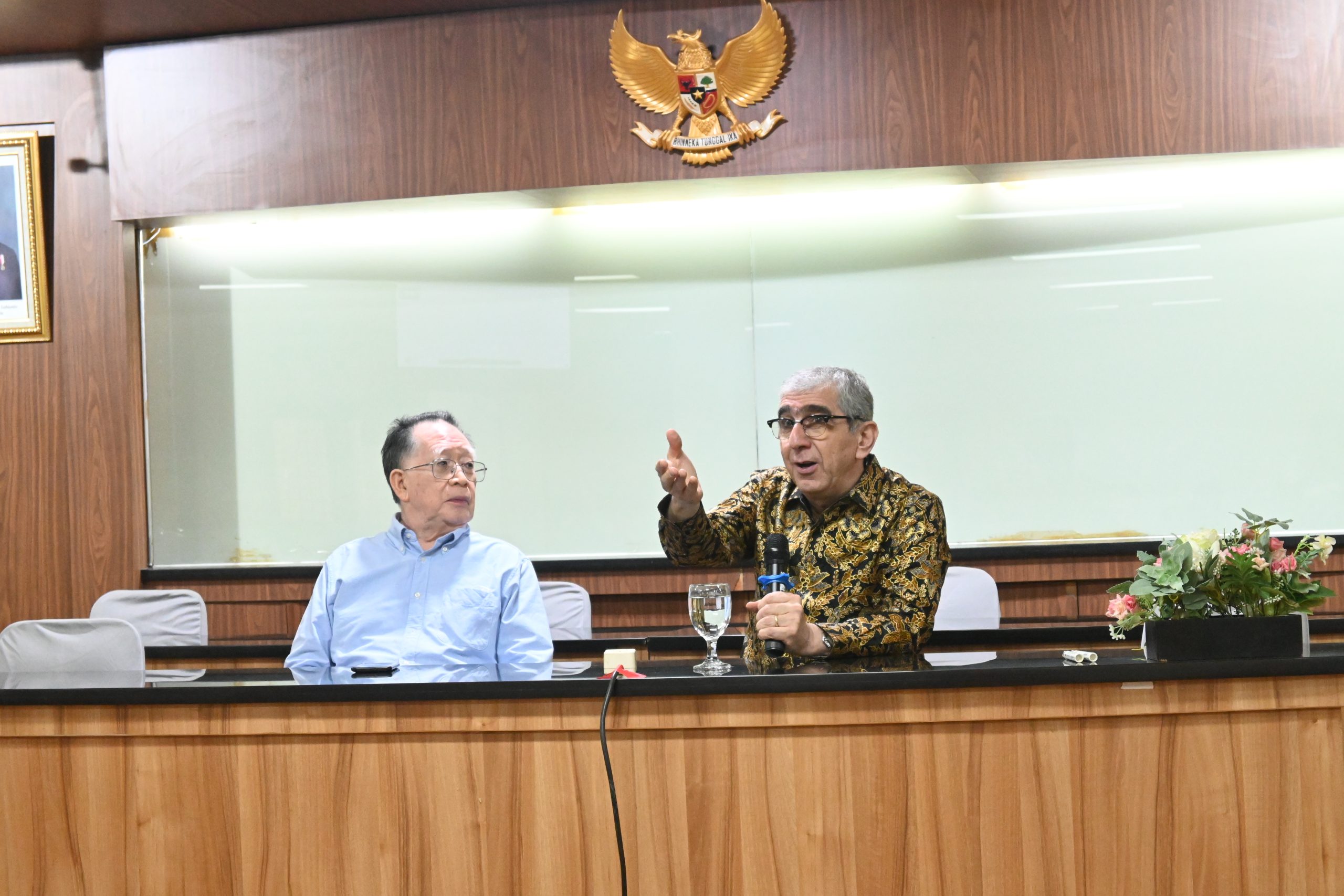Population dynamics, as well as sexual and reproductive health and rights, are fundamental issues in sustainable community development in Indonesia. Changes in fertility, mortality, and migration significantly affect population structure, while access to comprehensive reproductive health services is key to improving individual quality of life, especially for women and adolescents. Protected sexual and reproductive rights include the right to access information, education, and healthcare services that support free and responsible life choices.
Raising awareness and taking action on these issues is crucial for creating a more inclusive, healthy, and dignified society. Inviting Hassan Mohtashami, UNFPA Indonesia Representative, the Faculty of Public Health (FPH) at the Universitas Indonesia (UI) organized a Guest Lecture as part of the FPH UI Online Seminar Series 31. Held on December 11, 2024, this guest lecture took the topic “Population Dynamics, Sexual and Reproductive Health, and Reproductive Rights.” The lecture, which took place both in-person at the Doctoral Promotion Room, Building G, FPH UI and online via Zoom Meeting, was successfully moderated by Prof. Dr. Budi Utomo, M.P.H., Ph.D., and attended by over 100 participants consisting of FPH UI students and members of the Health Sciences Cluster (RIK) UI.
“Population dynamics is not only about numbers and statistics but also touches on the quality of life for every individual. Reproductive health and rights, especially for women and girls, are fundamental pillars for achieving gender equality, poverty eradication, and sustainability,” explained Dr. Ir. Asih Setiarini, M.Sc., Vice Dean for Education, Research, and Student Affairs of FPH UI, in her opening speech. Dr. Asih also emphasized that, despite significant progress, challenges remain, particularly due to policies that are not supportive of human rights. “Today’s lecture provides an opportunity for us to reflect on the challenges we face and explore innovative solutions,” she continued, officially opening the guest lecture session.
Hassan Mohtashami provided a comprehensive overview of reproductive health and rights. He highlighted important issues such as female genital mutilation (FGM), child marriage, teenage pregnancy, sexually transmitted infections including HIV, and family planning (FP). Hassan stressed that comprehensive sexuality education (CSE) and attention to adolescent sexual and reproductive health (ASRH) are crucial to address these challenges.
According to Hassan, the quality of reproductive health and sound family planning is key to achieving economic growth, sustainable development, peace, and security. “If reproductive health needs are not met, gender equality is hard to achieve,” he said, emphasizing the close connection between reproductive health and human rights. He also discussed population dynamics, including stable fertility rates, maternal mortality ratios (MMR), and migration, while stressing that well-planned pregnancies can prevent early death and miscarriage, as well as improve the quality of life for families.
Hassan emphasized that reproductive health is a critical element that affects various aspects of community life and requires serious attention to create sustainable development. Furthermore, he highlighted the importance of family planning as a strategic intervention to reduce maternal mortality rates. He noted that maternal death can be significantly reduced or even prevented through technology and evidence-based interventions. However, challenges still arise during childbirth, which is why modern technology and risk assessments during pregnancy should be utilized to minimize such risks. “Collaboration between communities, academia, and policymakers must be encouraged to integrate reproductive health into efforts to achieve gender equality and sustainable development,” said Hassan.
On this occasion, Dr. Laila Fitria, S.K.M., M.K.M., Academic Manager of FPH UI; Ema Hermawati, S.Si., M.K.M., Head of the Environmental Health Bachelor Program at FPH UI; and Dr. Al Asyary, S.K.M., M.P.H., Secretary of the Environmental Health Bachelor Program at FPH UI, were also present.
This seminar serves as a reminder that reproductive health and rights are the cornerstone of efforts to achieve gender equality, sustainable development, and community well-being. Through the insightful perspectives shared by Hassan Mohtashami, the academic community is encouraged to understand that issues such as family planning, maternal health, and reproductive education are not just individual matters but also reflect collective efforts to create a healthier and more inclusive society. (DFD)

